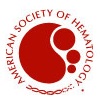 AbbVie ($ABBV), questing to justify its colossal buyout of Pharmacyclics, came away among the winners of the weekend's American Society of Hematology meeting, while the recently IPO'd Global Blood Therapeutics ($GBT) ran into mixed results with its sickle cell therapy and Celgene ($CELG) doubled down on immuno-oncology.
AbbVie ($ABBV), questing to justify its colossal buyout of Pharmacyclics, came away among the winners of the weekend's American Society of Hematology meeting, while the recently IPO'd Global Blood Therapeutics ($GBT) ran into mixed results with its sickle cell therapy and Celgene ($CELG) doubled down on immuno-oncology.
> Alongside partner Roche ($RHHBY), AbbVie reported detailed data from a Phase II trial on the chronic lymphocytic leukemia treatment venetoclax, in which the drug met its primary goal and charted an overall response rate of 79.4% in pre-treated patients. Nearly 8% of volunteers saw their cancer completely eradicated, the companies said, and 84.7% of all responses were maintained out to one year. The positive data from a tough-to-treat patient population bolsters venetoclax's market potential in CLL as AbbVie and Roche await FDA approval. The drug's performance is of particular importance to AbbVie, which spent $21 billion on Pharmacyclics this year to get a 50% share of the CLL treatment Imbruvica. The company justified its bullishness in part by talking up the blockbuster potential of an Imbruvica-venetoclax combination. More
> Global Blood Therapeutics, which raised $120 million in an August IPO, unveiled updated data from an ongoing sickle cell study that seemed to leave analysts and investors cold. The company's drug is an oral treatment designed to prevent sickling, and much of the excitement around its IPO came from a trial on 6 patients in which the pill reduced sickle cell counts by about 80%. In expanded data on 30 patients, two doses of GBT's drug fell short of that earlier mark, leading to 56% and 46% reductions in average sickle cell count after 28 days of treatment, compared with a 14% increase with placebo. The company stressed that these are early results from an ongoing trial, and GBT is now extending the study to track patients over 90 days and enrolling a new cohort that will receive a larger dose of the pill. The biotech's shares fell about 11% in premarket trading on Monday. More
> Celgene, which paid $450 million to join forces with AstraZeneca ($AZN) on an immuno-oncology therapy, laid out a sweeping plan to advance the treatment in blood cancer. AstraZeneca's candidate, durvalumab, is a so-called checkpoint inhibitor, targeting a protein called PD-L1 to unblind the body's natural defenses to lingering malignancies. Celgene, taking the lead on the program's future in hematology, is launching four studies in the field, pitting durvalumab against multiple myeloma, myelodysplastic syndromes, lymphoma and chronic lymphocytic leukemia. AstraZeneca, contending with more advanced checkpoint therapies from Bristol-Myers Squibb ($BMY) and Merck ($MRK), recruited the hematology experts at Celgene in hopes of cutting the line in blood cancer, part of its expansive schedule of trials seeking to prove durvalumab's worth in a wide range of tumor types. More
> Agios Pharmaceuticals ($AGIO) disclosed 18-month results from its blood cancer therapy AG-221, touting data from 209 patients with acute myeloid leukemia or myelodysplastic syndrome in which Agios' drug charted an overall response rate of 37% and a complete remission rate of 18%, the company said. Agios said the interim data were an encouraging sign for its planned Phase III trial with AG-221. The drug, partnered with Celgene, is designed to combat cancers with certain gene mutations by modulating cellular metabolism, starving malignancies of the energy they need to survive. More
> Novartis' ($NVS) targeted treatment for acute myeloid leukemia came through with 23% improvement in overall survival in a Phase III trial, clearing the way for a regulatory submission next year. The drug, PKC412, is designed for AML patients with the FLT3 kinase mutation, which accounts for about one-third of diagnoses, Novartis said. In a global Phase III study, a combination of PKC412 and standard chemotherapy led to median overall survival of 74.7 months, beating out the 25.6 months seen on placebo alone. The results signal hope for patients with a particularly deadly disease, Novartis said, and the company expects to file PKC412 for global regulatory approvals in the first half of 2016. More